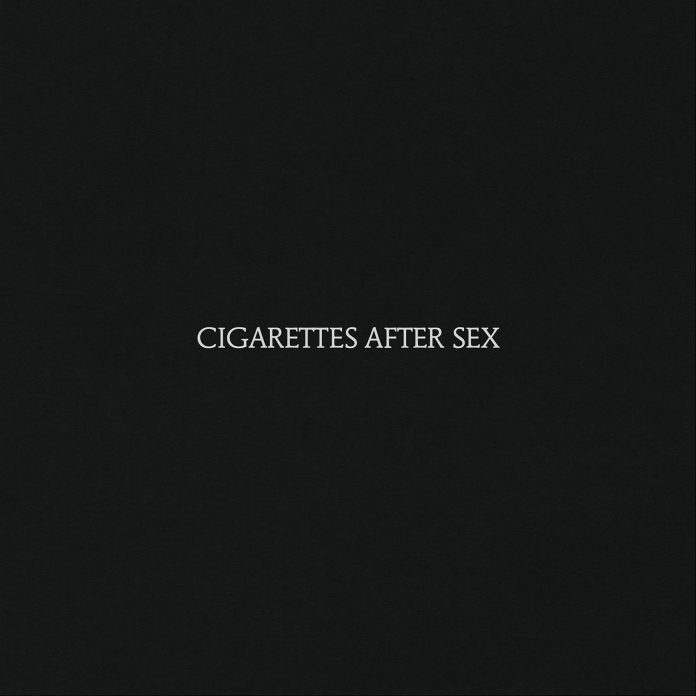I think it’s safe to say, at the risk of over-generalizing, that most people have already made up their minds about whether or not they like shoegaze. Either that, or they haven’t listened to it. And the odds of that happening organically, given that it hasn’t already, are slim.
Regardless of your opinion about or lack of familiarity with the genre, listen to Cigarettes After Sex’s self-titled debut. Do it. I’ll tell you why.
As minimalist as it is in terms of what it immediately gives listeners (a slow ride and snare backing, and a watery haze which is not so much pierced as much as ridden by Gonzalez’ comparatively delicate vocals), the record sets the band apart in the bevy of acts that came crawling out of the post-punk revival woodwork.
And although it’s hard to place this album on a popular music spectrum that’s preoccupied with dance beats and largely escapist (as opposed to personal) themes, it’s just as infectious. Take the opening track, “K.” Slow in its build-up to what can only be described as a passive yet melancholy groove, the track reveals itself lyrically as unabashed yearning, and as compelling in its instrumental texture as it is infectious.
At 10 tracks, which for the most part retain a slower tempo, the record is surprisingly fresh in its content. That is, it doesn’t go stale while listening. Take “Sunsetz,” for example. The track serves as a slow-dance anthem in the making and its picturesque description of a narrator’s feelings of nostalgia for a previous lover. Is it cliché? Yes, perhaps. But it’s not cynical in its use of a cliché, we’re not being sold emotion through what feels like an empty gesture. Instead, taking a page out of the emo genre (or, more accurately, using the page the emo genre took out of the post-punk genre), we’re presented with intimacy without voyeurism. We accept it not because we’re told to, but because it’s earnest.
Not to keep beating the same dead metaphor over the head with itself, but the record’s primary function is that of reflection. It’s as if someone decided, this is it. Today’s the day I head out onto the streets, find a seat, and read my diary out loud for the public.
“John Wayne,” arguably one of the record’s best tracks, describes and attacks the hyper-machismo of the narrator’s romantic rival. “He’s got so much in his heart, but he doesn’t know what to do. / All he wants is her, lying inside his room.” What’s most interesting is that, thematically, we’re not that far out from the stomping grounds of modern pop. Even in his lament, the narrator connects with contemporary images. “Baby, he’s got to be crazy, living like he’s John Wayne.”
What’s not contemporary then, is Gonzalez’s choice to include content which puts him in a position of emotional vulnerability, as opposed to turning to escapism or the safety afforded by ironic distance. “Young & Dumb” does the same thing, but instead takes aim at a lover and, in turn, Gonzalez himself. Also, it’s got to be the one of the catchiest songs on the record.
Summertime sadness or not, there’s something in Cigarettes After Sex’s debut for just about anyone.


